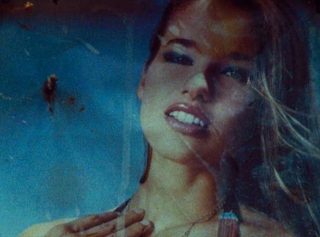Date: 22 October 2011 | Season: London Film Festival 2011 | Tags: London Film Festival
NATHANIEL DORSKY / BEN RIVERS
Saturday 22 October 2011, at 4pm
London BFI Southbank NFT3
Nathaniel Dorsky, Pastourelle, USA, 2010, 17 min
‘A pastourelle and an aubade are two different forms of courtship songs from the troubadour tradition. In this case, the film Pastourelle, a sister film to Aubade, is in the more tumultuous key of spring.’ (ND)
Nathaniel Dorsky, The Return, USA, 2011, 27 min
‘Like a memory already gone, this place of life.’ Dorsky has created a poetic form of cinema in which the screen becomes a site for reverie or transfiguration. In his most recent film, he seems to move towards a more abstract representation of light and being.
Ben Rivers, Sack Barrow, UK, 2011, 21 min
The march of time claims another casualty. Sack Barrow documents (and laments) the out-dated, but functioning, technology of a family owned electroplating factory in the weeks around its closure – its old ways now unsustainable in the modern world.
Also Screening: Tuesday 25 October 2011, at 8:45pm, NFT2
PROGRAMME NOTES
NATHANIEL DORSKY / BEN RIVERS
Saturday 22 October 2011, at 4pm
London BFI Southbank NFT3
NATHANIEL DORSKY / BEN RIVERS
PASTOURELLE
Nathaniel Dorsky, USA, 2010, 16mm, colour, silent, 17 min
Though silent, like all Dorsky films, Aubade and Pastourelle are named for types of love songs. His editing establishes tempo, and the shots, lyrical yet specific, thread through the film like melody lines. Music owes its universality to its abstract and primal qualities, which evoke intense emotion. Dorsky’s films operate on the viewer in this manner while still relying on recognizable images. By presenting music visually, he enlarges our sense of what songs and films alike can be. In particular Dorsky is drawn to the ways in which one thing becomes a conduit for transmitting another. Window surfaces are a recurring motif: through reflection, panes of glass contain images while remaining transparent, transforming the appearances of people or street scenes. There’s a shot in Pastourelle of vertical blinds shading a window; a strand pivots on its axis, animated by a draft. It’s mundane and magical simultaneously, an inconsequential detail that contains everything that is meaningful about seeing and being. The blind and the breeze share an interconnectedness you feel in your bones. An explication can’t do it justice. The wonder lies in the fact that it simply is. (Nicole Armour, Film Comment)
www.nathanieldorsky.net
THE RETURN
Nathaniel Dorsky, USA, 2011, 16mm, colour, silent, 27 min
Nathaniel Dorsky, the subject of numerous recent international retrospectives, is producing some of the most resplendent art of our time; his film work stems as much from painting and poetry as the outside world. With The Return, his latest film shot on 16mm and projected at silent speed (18fps), Dorsky delves deep into multiple (under)worlds, sometimes uncanny and surreal, reflected and refracted through various natural and man-made obfuscations like grids, glass, water and brush. From its wintry willow branches to wafting hand gestures in a café, The Return harbours a phantasmal feel, offering a sentient, sometimes dark rumination
on the mysteries that await us. It is, in Dorsky’s words, ‘Like a memory already gone, this place of life’. (Andréa Picard, Toronto International Film Festival)
www.nathanieldorsky.net
SACK BARROW
Ben Rivers, UK, 2011, 16mm, b/w & colour, sound, 21 min
Sack Barrow extends Rivers’ engagement with the marginal and overlooked. The factory is not a state-of-the-art capital producing business, but a site of anachronistically uncompetitive endeavour. The years of production are evident and the regimented clocking in and out of workers attests to the outmoded practices here, unlike the liberal job-sharing egalitarianism that government policy and public expectation impose elsewhere. The run-down architecture, the drips and crusty build-ups of toxic chemicals, the dangling wires, wizened faces and the general pragmatic clutter of the place come close to the patina of the unkempt shacks of earlier films. Sack Barrow is a hymn in a new register to the steadily disappearing textures of the past. (Sally O’Reilly)
www.benrivers.com
Back to top
